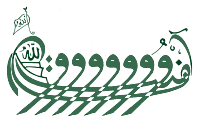
‘As for that boat, it belonged to some needy people who toiled upon the sea – and I sought to damage it because I knew that close on their heels was a king who would have taken their boat by brute force.’
Khidr knew this in retrospect. Unlike Moses and other humans, he possesses unerring knowledge of subtle reality unrestricted by time, and acted in accordance with that knowledge so that needy people would be protected, rather than exploited. Khidr, too – here symbolizing the movement of the will of Allah upon earth – was acting in accordance with a divine understanding and compassion that outstripped Moses’ capacity to understand with logic. Each expressed his understanding and compassion in his own way. That divine wisdom and compassion flows even in those moments in which we lose our most valued possessions. From one misfortune, a blessing may emerge.
‘And as for that young man, his parents were true believers – whereas we had every reason to fear that he would bring bitter grief upon them by his overweening wickedness and denial of all truth; and so we desired that their Sustainer grant them in his place a child of greater purity than him, and closer to them in loving tenderness.’
This, too, is a retrospective understanding. Khidr knew the future, and knew that one death would be followed by another life of equal or greater potential, and greater ultimate manifestation of that potential – particularly the potential for integrity and familial intimacy. Khidr also understood that the grief that inevitably follows profound transgressions of moral codes (which represent the fundamental principles of humane personal interaction) may be equal to or greater than the grief that follows the death of a child. He understood that divine wisdom flows even in those moments in which we lose those dearest to us.